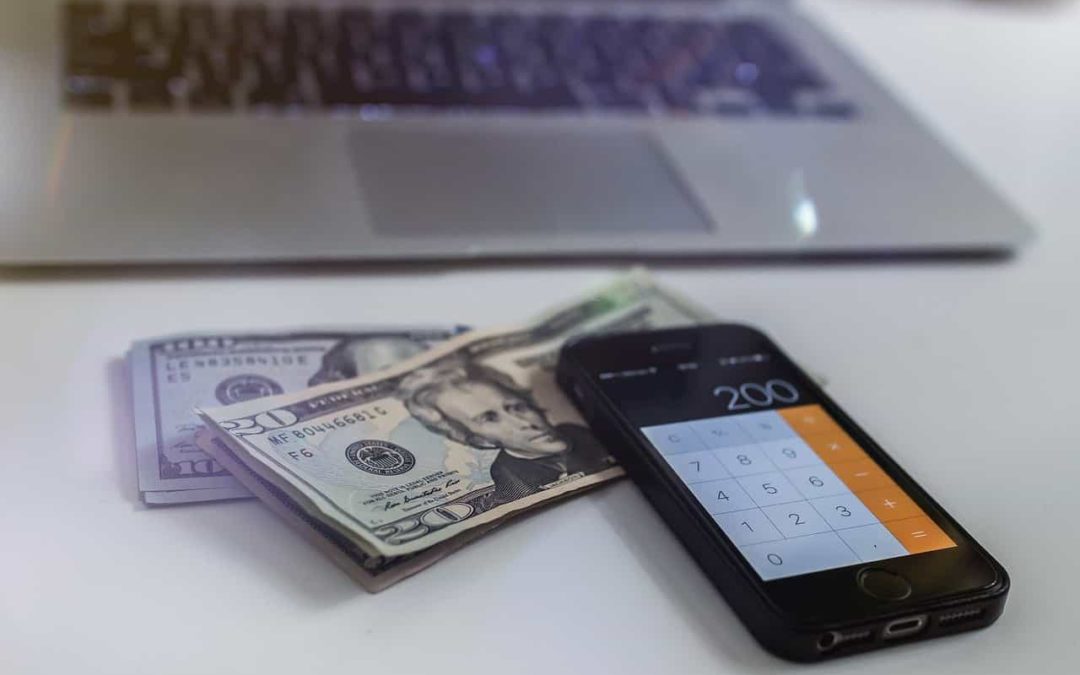Budgets Are Good!
While budgeting can stir up many negative feelings for some, fully engaging yourself with starting a budget can be a very positive and life changing experience! A budget is simply defined as a plan with a breakdown of ongoing income and expenses. It also can include savings that are needed to achieve certain financial goals. Budgeting is helpful not only to personal finance, but also to businesses.
Creating a budget for your business enables you to manage cash flow as well as track your expenses and revenue. It also allows businesses to understand their financial limitations. Additionally, budgeting can benefit businesses in the following 5 ways:
Budgeting For Business
1. Respond and react to the market
Having a budget that doesn’t go any further than setting spending limits is damaging to any business because it prevents it from responding and reacting appropriately to dynamic market conditions. However, a flexible budget will help a business owner adjust accordingly to changes in the market. Through this, businesses can adjust spending and also enhance their marketing to hopefully increase sales and revenue. Budgeting allows business owners to weather unexpected changes and, in the end, realize huge returns and improve the accountability of the business’ finances.
2. Make revenue and expense projections
With a business budget, you can project annual business expenses and future project changes in costs and prices. This helps formulate the average weekly and monthly revenue goals to assist in setting expectations for sales and marketing. It also helps to know how much money there is each month. This can assist you in managing cash flows to make sure you don’t run out of cash to pay monthly bills. Also, creating a budget for your business enables you to forecast annual expenses and revenue. With such projections, you can plan your finances effectively and avoid unnecessary borrowing.
3. Gain insights on pricing
Regarding your business, looking into market trends and conditions shouldn’t be your only concern. You also need to set rates, fees, and prices for your services and products. Businesses need to be aware of their production and overhead costs before setting their prices. Budgeting enables business owners to project different costs relating to wages, rent, marketing, healthcare, and utilities. In doing so, you will be able to discover the cost per unit for producing your goods or service delivery. By doing this, you can set prices accordingly and, in the end, realize projected profits. When your prices are too high and not competitive, your budget will help in identifying areas where reduction of cost can be applied.
4. Helps in getting credit and or business capital
If you don’t have financial records, it will be almost impossible to get approved for credit. Lenders, including banks, provide credit and loans to businesses that have financial data showing their income and revenue statistics. So if you don’t have assets that can act as collateral, you must produce your financial statements to the lender to prove that you have a stable and profitable business. When it comes to financial records, a budget is one of the essential tools that form a foundation for generating financial data. If your business is new, it is your budget that will demonstrate to potential partners how their involvement will influence your sales and profits.
5. Adjust to changing conditions
You can use a budget to keep track of the performance of your business all through the year. This will enable you to make appropriate and necessary changes to your prices and costs to retain customers and grow sales. Whenever your sales decline, you can rely on your budget to identify areas where product or service delivery costs can be reduced.
Budgeting For Personal Finance
Creating a budget is vital not only to business owners but also in personal finances. Budgeting will help you accomplish the following 5 things:
1. Have 100% control of your finances
If you don’t control your money, it will take control of you. Creating a budget is an effective and intentional way to control your money. With a budget, you can avoid the stress and worry that is brought about by overspending and unexpected expenses. One important benefit is that budgeting helps you to realize what your weakest spending habits are. This knowledge will help you decide about the habits you need to avoid in order to control spending and stop wasting valuable cash. Much of the anxiety associated with budgeting comes from not following a budget and having bad spending habits. This usually results in not having enough money and you may need help paying bills.
2. Track financial goals
Budgeting your finances enables you to avoid spending money on unnecessary products, services, and fees that reduce the chances of reaching your financial goals. If you are working with a fixed income, making a budget will allow you to save more towards your goals. Once you decide what your financial goals are, be sure to create a budget to come up with an effective plan that will help you achieve your goals. For example, if you want to save $1,000, decide how much you can save each month and treat it as an expense item. Each month, after depositing money in your savings account, review your balance and see how much closer you are to reaching your goal of saving $1,000!
3. Understand sources of income and spending
Budgeting helps you to understand where your money is coming from and where it’s spent. In doing so, you can anticipate the amount of money you will have after a specific period, such as a week or month. Also, understanding your financial situation allows you to know what you can afford and what you can’t. You can plan effectively about investment and buying opportunities and even make some great plans to lower or consolidate your debt.
4. Organize your spending
Without a budget, you are likely to buy anything or go out to eat without giving it a second thought. In doing so, you might run out of money as a result of your overspending. In fact, you might be left with unpaid bills. However, you can avoid unnecessary spending by coming up with a budget and tracking it often. You will be able to determine priorities regarding your spending when you know where you stand in regard to your remaining expenses. Also, a budget will allow you to spend wisely without using money that should be earmarked for other financial goals.
5. Enables you to save
By creating a budget, you can plan your financial future and determine the amount of money you can save comfortably. People who don’t work with a budget may use all of their money on bills and unnecessary spending, without a plan to set some aside each week or month. Such individuals do not save anything even after years of working or being in business. Then, when a financial surprise comes up, they may have to look for emergency loans or credit cards to help them resolve their need. However, that can be avoided by creating a personal budget and sticking to it. Regardless of how much income you make on a weekly or monthly basis, you can surely save part of it. Even if it’s only $20/month, your budget will allow you to determine the amount of money you can allocate to your savings. There are also plenty of ways to save money you may not have considered. Do some research, make an action plan, and you will be successful!
Check Your Loan Rates
Answer a few short questions to see which personal loans you pre-qualify for. It’s quick & easy, and it will not impact your credit score.

Mike Lombardi, MBA
Personal Finance Expert
Mike Lombardi earned his bachelor’s degree in Finance, as well as his MBA in Economics. He has been in the personal finance industry for 24 years. He spent 12 years working for a large bank as the loan operations manager before switching gears and managing client portfolios at a small wealth management firm. He enjoys helping people develop and implement a personal budget, formulate a strategy to improve their credit scores, and show them how to work towards becoming debt free by designing a debt reduction plan unique to each person’s situation.

